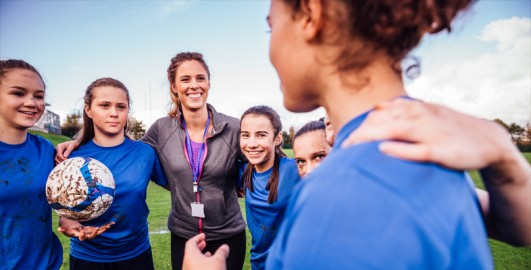Week 2: Neurodiversity in sport and exercise: an athlete’s voice
Introduction
This week applies your learning from Week 1 to consider neurodiversity from an athlete’s perspective. You will explore the real-life experiences of neurodiverse athletes from grassroots to elite level, through viewing a range of quotes, case studies and videos. Some of the research within this area that is beginning to inform practice is also considered.
The sensory issues that may be experienced by neurodivergent athletes in a range of sport and exercise settings are also discussed as well as a consideration of how coaching practices can be altered to meet an athlete’s needs.
One athlete who has been vocal about her neurodivergence is England footballer Lucy Bronze. At the time of writing the course, Lucy plays for Chelsea Women in the Women’s Super League and represents the England women’s football team. You will watch further clips later in the course to hear more about Lucy’s experiences, but for now watch the clip below and consider how some of the information in Week 1 is reflected in Lucy’s story.
Lucy Bronze opens up about autism & ADHD diagnosis [Tip: hold Ctrl and click a link to open it in a new tab. (Hide tip)] . Watch from 0:37 to 1:40.
By the end of this week, you should be able to:
- consider how athletes with sensory issues may experience different sporting physical spaces
- describe the term ‘masking’ and its relevance to neurodivergent athletes and their mental health and wellbeing
- recognise how the structure of the coaching environment may impact a neurodivergent athlete.
